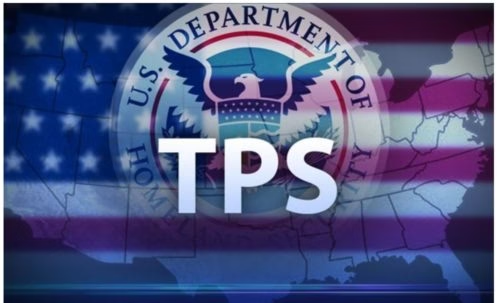A pivotal hearing addressing the challenge to the Biden administration’s decision to end TPS designations for multiple nations was conducted this Monday before a federal court judge.
The lawsuit was initiated by a coalition of Temporary Protected Status (TPS) recipients contesting what they claim to be the unlawful termination of their humanitarian protections, with specific focus on protections for individuals from Venezuela and Haiti.
The plaintiffs, comprising TPS beneficiaries from Venezuela and Haiti, sought judicial intervention to halt the directive issued by Department of Homeland Security (DHS) Secretary Kristi Noem, which aims to discontinue protections by April 2, until the legal proceedings conclude.
Nearly 350,000 Venezuelan TPS holders face potential loss of their employment authorization and legal status beginning in early April. Furthermore, an additional 250,000 Venezuelans and 500,000 Haitians could see their protections expire this summer if Secretary Noem’s directive remains in effect, as warned by immigrant advocacy groups, including the Haitian Bridge Alliance.
This hearing represents the initial court proceeding in NTPSA v. Noem, a legal challenge filed in February contesting the administration’s withdrawal of protections previously granted. The plaintiffs contend that Secretary Noem’s decisions are unprecedented, unlawful, exceed her authority, and stem from racial bias. The litigation seeks to safeguard over one million TPS beneficiaries, predominantly Venezuelan and Haitian nationals, from this discretionary termination.
The campaign to preserve TPS protections is spearheaded by the National TPS Alliance, a member-led organization representing tens of thousands of TPS recipients and serving as the lead plaintiff. The legal effort receives support from multiple organizations, including the National Day Laborer Organizing Network (NDLON), ACLU foundations of Northern and Southern California, UCLA Center for Immigration Law and Policy, and the Haitian Bridge Alliance.
Statements from the plaintiffs and their legal team:
“The termination of TPS for Venezuelan and Haitian communities stands in direct violation of legal principles and inflicts severe hardship on families who have sought refuge from dire circumstances,” stated Jose Palma, National TPS Alliance coordinator, affirming their commitment to pursue legal action against this “unwarranted ruling, ensuring TPS recipients maintain their established rights, employment, and protection.”
A Venezuelan TPS holder, E.R., provided her personal account regarding the impact of this decision:
“TPS serves as a lifeline for my daughter and myself. Learning about our TPS revocation with merely a week’s notice left me profoundly distressed. This status represents our sole pathway to safety. The prospect of returning to Venezuela poses an unacceptable risk to our well-being,” she explained. Jessica Bansal, representing the National Day Laborer Organizing Network (NDLON), emphasized that the DHS’s decision to withdraw humanitarian protections from hundreds of thousands of Venezuelan migrants is “without precedent and clearly violates legal standards.”
“We are pursuing immediate judicial intervention to prevent the devastating impact that migrant families will endure if the DHS’s unlawful decision takes effect next week,” the Haitian Bridge Alliance declared in their official statement.
During her address, Attorney Emi MacLean from the ACLU of Northern California emphasized TPS’s core humanitarian purpose:
“TPS was explicitly created for scenarios like this. Venezuelan nationals, confronting a severe humanitarian crisis in their homeland, cannot safely return and thus sought protection in the United States,” she explained. She further noted that “Secretary Noem lacks the legal authority to withdraw TPS protections or compromise a legally established program.”
Ahilan Arulanantham, speaking for the UCLA Center for Immigration Law and Policy, detailed the legitimacy of their legal challenge, which aims “to block the federal administration’s attempt to strip TPS protections from six hundred thousand Venezuelans. This ruling clearly violates TPS legislation and demonstrates discriminatory intent, conflicting with Fifth Amendment principles. The administration cannot arbitrarily disregard inconvenient laws,” he asserted.
The Haitian Bridge Alliance maintains active involvement in compelling the Trump administration to reverse its TPS revocation decision affecting Venezuelans and Haitians residing in the United States.
“We stand firmly behind these courageous plaintiffs who merit assurance that their humanitarian protections will remain intact,” stated Erik Crew, legal counsel for the Haitian Bridge Alliance.
The legal battle continues as plaintiffs await an expedited court ruling to prevent catastrophic repercussions for over one million individuals whose lives face potential upheaval should the TPS revocation take effect.
Congress enacted the Temporary Protected Status legislation in 1990. While presidential authority includes evaluating the necessity of maintaining TPS designations for specific nations, legal scholars emphasize that unilateral termination of TPS status exceeds presidential powers under U.S. constitutional framework.







